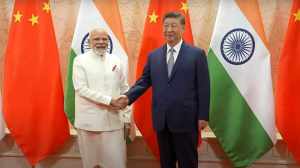Oil PSUs under attack from customers
MUMBAI, JUNE 18: In the wake of a ban on inter-state supply of petroleum products by the Centre, the public sector navratna oil majors, In...

MUMBAI, JUNE 18: In the wake of a ban on inter-state supply of petroleum products by the Centre, the public sector navratna oil majors, Indian Oil Corporation Ltd IOC, Bharat Petroleum BPCL and Hindustan Petroleum HPCL have come under fire from their customers.
8220;Such a decision is against the government8217;s own rule of issuing the central concession tax form form C. Genuine customers will face massive losses instead of profit earned by lower inter-state tax differential,8221; said Gulbarga-based Rajashri Cement Senior Commercial Manager K K Chitlangia.
Rajashri Cement is a division of Grasim Industries and used to buy diesel from IOC8217;s Maharashtra unit, availing huge benefits due to the concessional Form C8217;. 8220;Our consumption is 3,000 kilolitre kl per annum but now due to the ban we are looking for alternatives or even buy from private players like Reliance Petroleum at a much higher rate,8221; Chitlangia said.
In fact, the company has written a protest letter to IOC stating that such a move, which has also banned credit, would result in massive losses with an enormous rise in cost of production.
The oil PSUs had banned inter-state movement of diesel and naphtha by road in the wake of sales tax scam in Gujarat, Madhya Pradesh and Maharashtra.
Early this month, Sultanpur-based Indo-Gulf Fertilisers and Chemicals, which is a major consumer of naphtha from IOC, also dashed off a strongly worded letter to IOC stating 8220;8230; as a business entity IOC is bound by contractual commitments and it cannot quote government policies as an excuse8230;.8221;
8220;I cannot agree less. Thanks to the directive, there is no difference in the prices offered by my company or HPCL and BPCL. Private players like Reliance and those who import oil will now have a field day,8221; an IOC official said.
Following the ban, Bhilwara-based Sangam India Ltd has already started buying furnace oil from private oil importing companies like Birla International Management Firm and Adani Exports Ltd, both based in Kandla, Gujarat.
The company commands a major presence in the spinning yarn industry in Rajasthan and consumes 7,500 kl of furnace oil annually and prior to the ban was sourcing its requirement from IOC and BPCL. 8220;The government should have taken the plight of genuine consumers like us into consideration. Today I have to buy furnace oil at a price of Rs 9,800 to Rs 10,500. With the help of the Form C8217; my cost would have been phenomenally lower,8221; executive vice-president G C Jain said.
Sources say the ban could also violate various memoranda of understanding signed by the PSUs with their respective consumer industrial units. Moreover, the industrial consumers can also take legal action against the PSU in lieu of violation of the signed contractual agreements, they pointed out.
8220;Last fortnight, we have received more than 40 calls from our customers asking us to retain the inter-state supply. It is just matter of time for us to receive a legal notice from the customers,8221; a senior HPCL official confided.
In addition, the Indian Spinner8217;s association, in a letter to the Petroleum Secretary S Narayan described the problems faced by the industry and asked the government to restore inter-state movement of the petroleum products. The association said, with the withdrawal of the facility industrial units would suffer heavy cost escalation without any reason, 8220;8230; on the other hand, artificial restriction on smooth movement of commodities and merchandise leads to compartmentalisation8230;,8221; it added.
The association feels that industrial units, which are situated at inter-state border, often find it easier and economical to procure petroleum products from across the state instead of from other centres in their own state.
Meanwhile, reacting to media reports over involvement of PSU officials in the diesel scam, the Oil Sector Officer8217;s Association OSSA, have in a statement alleged that the processors were the primary offenders and also beneficiaries of the form C8217;. 8220;The primary responsibility to prevent evasion of sales tax is of the sales tax department and8230; of the processor,8221; OSSA chairman Ashok Singh alleged.
The officials said they rely on documents issued by the Sales Tax and Explosive certification department to check and verify the credentials, existence and working conditions of processors before issuing certificates. The oil PSUs had banned inter-state movement of diesel and naptha by road in the wake of sales tax scam in Gujarat, Madhya Pradesh and Maharashtra.
Currently, as per the government directive the PSUs have discontinued discounts or financial incentives like credit on diesel and naphtha sales to any customer thus eliminating 8220;intermediaries8221; in order to prevent recurrence of the scam entailing diversion of petroleum products meant for other states to avail concessional sales tax rates.
Presently, the PSUs are in a constant touch with the ministry, providing information to the government over the movement and sale of the products. 8220;We are trying to explain to the ministry that a relook at the issue should be undertaken based upon the representations and pleas made by the companies,8221; the HPCL official said.
- 01
- 02
- 03
- 04
- 05































